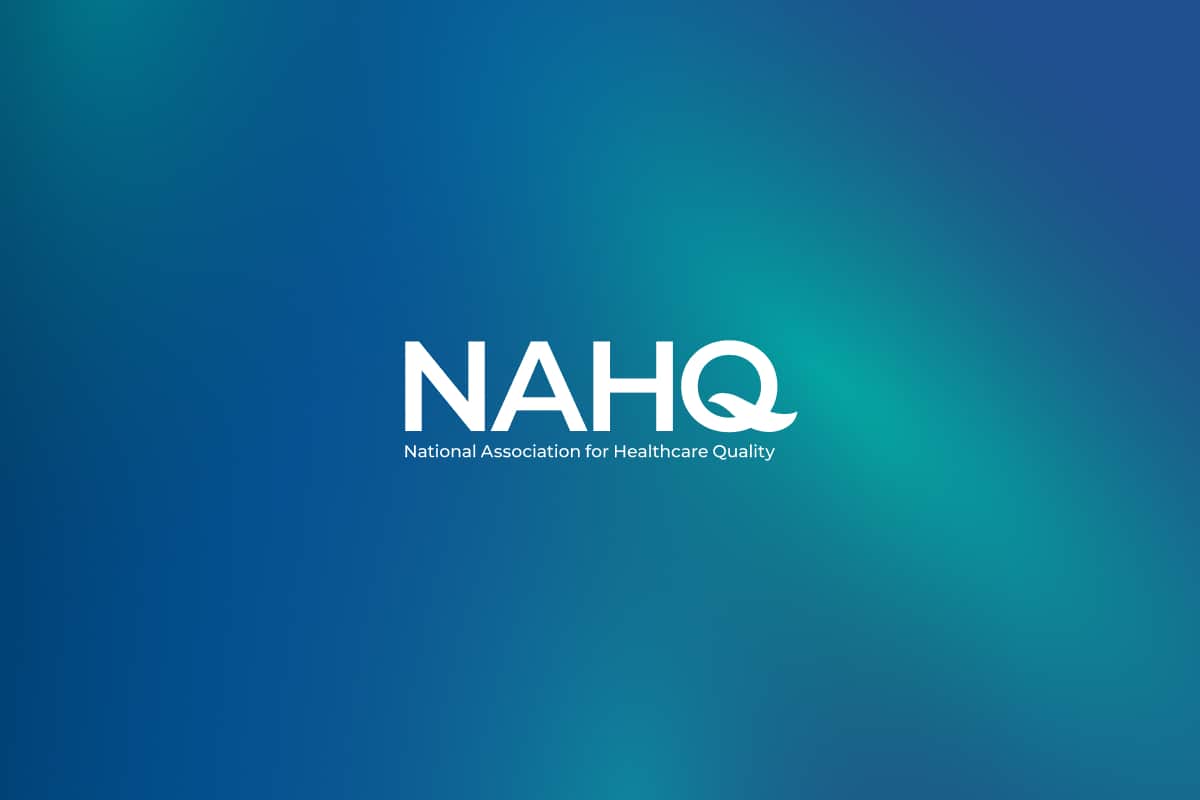The struggle is real. We are experiencing a significant shortage of healthcare workers. The crisis is particularly acute in nursing. The United States Bureau of Labor Statistics is projecting that 500,000 nurses will leave the profession this year, resulting in a shortage of over one million nurses across the continuum of care. For Terri Ruhter, RN, MS, CPHQ, CHC, field manager of compliance at Amedisys, this is one of the most significant, and potentially long-lasting impacts of the pandemic. “The core of quality is care,” Terri reflects. “No amount of data can compensate for direct patient care.”
Like many healthcare quality professionals, Terri’s appreciation of and dedication to supporting clinicians is rooted in personal experience. Terri began her healthcare career journey providing clinical patient care as a medical-surgical nurse. Then, drawn to community health, Terri took a position with the Indian Health Service, a division of the U.S. Department of Health and Human Services. There, Terri collaborated with a team establishing procedures and best practices as a part of a newly initiated infection control program. Inspired and highly motivated by this experience, Terri pursued her Master of Science degree in nursing administration. With a new appreciation for how research and data analytics can advance community health, Terri became a quality coordinator in a home health agency and found her calling.
“When I first started working in home health, we were just beginning to explore the analytics of advancing quality in the field,” Terri shares. “The Outcome and Assessment Information Set (OASIS) had only recently been released providing home health with comparative measurements of quality.” Terri embraced quality as an opportunity to bring value to patients and providers. “I wanted the best for our patients. I wanted to help make staff jobs easier, and I wanted them to see the importance of embracing quality improvement and change.”
Encouraged by her mentor Chrys Anderson, RN, CPHQ, Teri decided to pursue the Certified Professional in Healthcare Quality® (CPHQ) credential. This was one of the best decisions Terri made for herself and her career. When a quality position opened in a hospital that was struggling with state surveys, Terri made a move. According to Terri, “The CEO hired me because of the initials after my name. I am not sure he knew what the CPHQ was, but it demonstrated to him I was both committed to and qualified in quality improvement.” Terri worked with a team to turn quality data into quality outcomes. It took a significant effort, but the hospital turned around.
Maintaining her CPHQ for almost 20 years is a point of pride for Terri. “My CPHQ demonstrates to the teams I lead and support that quality is important to me, and I am dedicated to it.” Her CPHQ is just one of the tangible ways in which Terri takes her own advice to younger quality professionals: “Be passionate about learning. Be curious. Do not compromise your standards.”
Years ago, when Terri was hired as a part of the “quality turn-around” team, the CPHQ was not a job requirement. Today, things are different. CPHQ is a requirement in an increasing number of quality positions. For Terri, this reflects the overall rise in quality consciousness at the highest levels of healthcare leadership. “In the hospital setting, quality measures have become so important they are a standard part of board reports. Our patients are also better informed, and they are getting smarter and smarter. They recognize that they have choices. Quality is powerful for patients.”
I am inspired talking to Terri and all the healthcare quality professionals I serve in my work with NAHQ. Like Terri, I am also concerned about the impact the growing healthcare workforce shortage has on patient care and safety. The question I continue to ask myself is this: “How do we prepare ourselves to continue to advance quality amid severe healthcare workforce shortages?” What I know from my experience is that NAHQ, as our professional community, is at the forefront of addressing the workforce issues we face now and in the future. By providing individual and organizational workforce solutions based on research and data, some of which is made available to the industry through NAHQ Intelligence, NAHQ continues to lead in these unprecedented times. Your professional engagement with NAHQ has never been more important. Thank you for continuing to be a part of this transformational community of practice.
Emmett T. Ervin, MPA, CPHQ
NAHQ President
Related Content
Healthcare Quality Veteran Joins NAHQ to Lead Delivery of Suite of Offerings to Healthcare Organizations
CHICAGO (June 21, 2021) -- The National Associatio...
Read MoreNAHQ Releases Groundbreaking Quality and Safety Research
NAHQ’s New Research Reveals Missing Component to A...
Read MoreNAHQ CEO Stephanie Mercado Recognized as one of Modern Healthcare's “100 Most Influential People in Healthcare”
The Prestigious Award Honors the Most Influential ...
Read More
